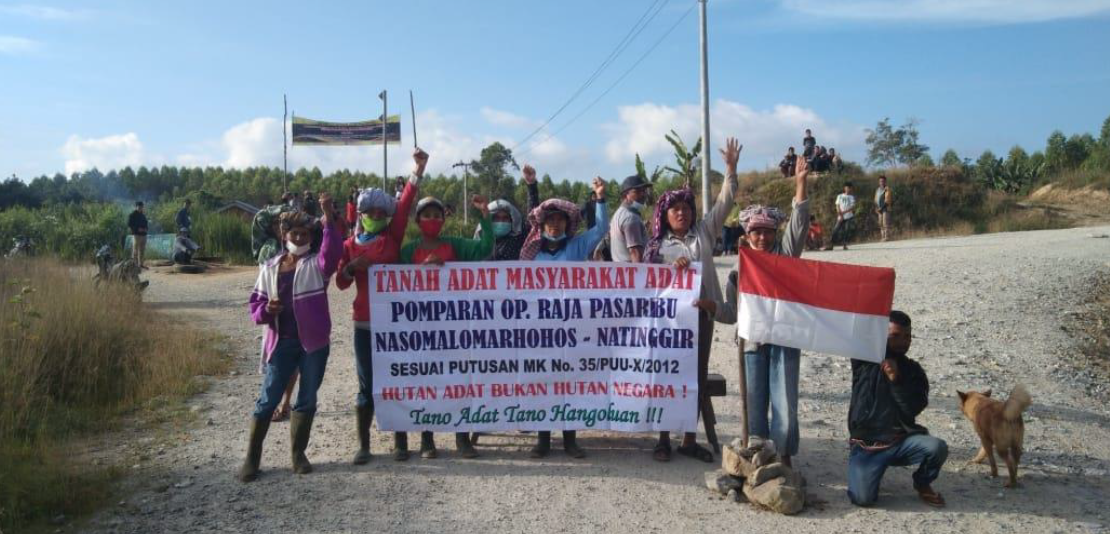
The Royal Golden Eagle Group (RGE Group) is one of Indonesia’s largest conglomerates along with Sinar Mas and Salim Group. Paper products such as copy paper produced by APRIL (Asia Pacific Resources International Limited), which is in charge of the paper and pulp division under its umbrella, are exported to many countries around the world, including Japan. In addition to paper pulp, APRIL has recently begun producing dissolved pulp, the raw material for viscose rayon. Many suppliers of wood raw materials to APRIL have taken advantage of the powerful development interests granted by the government to drive peat swamp drilling, clear-cutting of tropical forests, and the construction of acacia plantations, resulting in serious conversion of the natural environment and many disputes over land use with local communities. In addition to APRIL, the group’s top, Sukanto Tanoto, owns a pulp manufacturing company called PT. Toba Pulp Lestari(TPL) around Lake Toba in North Sumatra. TPL has been in fierce land conflicts with the Batak communities around Lake Toba and its inhabitants since the operation of its predecessor factory to this day. NGOs and the media have accused the false export declarations of APRIL, TPL and the rayon manufacturing company of the RGE Group in China. It has become a big problem internationally.
The RGE Group’s copy paper is also sold in Japan, and many are sold by major trading companies and at mail-order sites. Corporate loans from 3 mega-banks are also provided to such purchasing companies. Although the loan policy of 3 mega-banks has provisions for production companies, all 3 mega-banks do not have a loan policy for purchasing companies that use the products from problematic companies. So, improvement is necessary there.
Mitsubishi UFJ Financial Group(MUFG) is the direct lender to APRIL, the core company of the RGE Group’s pulp division. MUFG has lent APRIL continuously. According to MUFG’s policy, financing should not be provided because environmental and social considerations are not sufficient in situations that human rights violations are caused or that the environmental conservation value is lost. In reality, however, MUFG continues to lend to APRIL, and there is suspicion that it violates its own policy. It must be said that there is a big problem in lending to companies like APRIL, which has been disassociated by Forest Stewardship Council(FSC). MUFG needs to revise its forest sector policy, at least not to lend to companies that is disassociated by FSC, even if they have PEFC certification. It is also important to require its client pulp producers and purchasers to respect NDPE policy and FPIC.
Read the full report here (only in Japanese).
About Fair Finance Guide Japan
Fair Finance Guide Japan composes of four civil society organizations: Japan Center for a Sustainable Environment and Society (JACSES), Pacific Asia Resource Center (PARC), Alternative People’s Linkage in Asia (APLA), and Japan Tropical Forest Action Network (JATAN). Fair Finance Guide Japan focusses on analysing the policies of Japanese financial institutions (both banks and insurers) on their investments against common, comparable environmental, social and governance (ESG) criteria. Going beyond analysing the policies of these financial institutions, the Fair Finance Japan coalition also highlights the practices of different financial institutions and companies on the ground through their case studies. Underscoring the importance of an active and engaged civil society, the coalition works with other Japanese CSOs towards making Japanese financial institutions accountable for their financing activities across Asia.
For more information, please contact:
Mr. Yuki Tanabe, the Program Director for Japan Center for a Sustainable Environment and Society (JACSES).